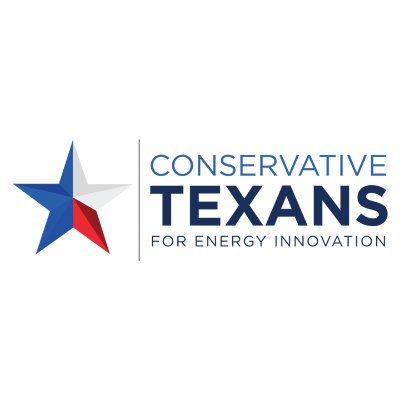By Jadyn Winsett
Texas has emerged as a powerhouse in America’s clean energy landscape, with solar leading the
charge. In just the last quarter of 2024, we added 2.4 gigawatts of solar capacity – that’s enough
energy to power roughly 1.8 million homes during peak sunlight hours. Whether in the heart of
ranch country or the core of our cities, Texans are showing that solar isn’t just the future, it’s
already here.
Texas’s solar growth is impressive, but serious challenges with energy security, foreign
dependency, and strategic preparedness have surfaced. A recent Reuters investigation discovered
undisclosed communication hardware, like cellular radios, hidden inside Chinese-made solar
inverters. These devices are critical links between solar panels and the grid, yet these
components weren’t documented and bypassed basic cybersecurity checks. This isn’t a minor
oversight; it’s a sign of deeper vulnerabilities.
Hidden Backdoors, Real-World Risks
Cybersecurity experts warn that covert tech like this could allow foreign actors to access or even
disrupt our power grid. And this danger isn’t hypothetical. In late 2024, solar sites across the
U.S. and abroad reported mysterious inverter shutdowns.
Not long after, Lithuania responded to its cybersecurity fears by cutting off Chinese remote
access to its clean energy infrastructure. In contrast, U.S. authorities have remained silent. No
public agency has issued a response in the United States, no manufacturer has been named, and
no comprehensive risk review has been released. Silence shouldn’t be mistaken for safety.
Let’s not forget: inverters aren’t auxiliary gadgets. They’re the bridge between solar panels and
the power grid. With Chinese companies dominating global inverter production, the U.S. is in a
dangerously exposed position.
It Goes Deeper: The Supply Chain Problem
Inverter issues are just one piece of a much bigger problem. China dominates nearly every stage
of the solar supply chain, from raw materials to fully assembled modules. Despite recent gains in
U.S. production, around 80% of solar panels installed here still rely on Chinese components.
Even American-made solar panels are rarely 100% American.
Take Trina Solar. The Chinese company is building a 5 GW plant right here in the Lone Star
State. The addition of a 5 GW solar plant in Texas sounds like a win, but key inputs still trace
back to China, meaning that even a locally assembled product could carry risks tied to Beijing.
And those risks aren’t just hypothetical; they’re backed by law. Under China’s 2017 National
Intelligence Law, Chinese firms are obligated to cooperate with their state security agencies,
even when operating abroad. So when Chinese-made solar parts integrate into American grids,
it’s not just about clean power, it’s also about access and who controls it.
This Isn’t Just Policy Talk Anymore
On a recent episode of The Joe Rogan Experience, Joe Rogan and guest Aaron Rodgers weighed
in on the spyware hidden inside of Chinese solar inverters. “This is the ultimate Trojan horse,”
Rogan said. “Props to China. They’re so clever. They knew we’re dumb and they know we’re
greedy. So we want like cheaper stuff.” He followed up bluntly, “Why don’t we just shut this shit
down? Because we can’t make these things.”
Rogan’s no stranger to blunt commentary, but in this case, his frustration hits a nerve that cuts
across political lines. When deep supply chain vulnerabilities become viral talking points, it’s
clear that the public is paying attention. That awareness alone won’t solve the problem, but it’s a
sign that the clock is ticking and Texans can’t afford to wait.
Texas Can’t Be Passive
Texas stands on innovation, independence, and leadership. But those values only matter if we’re
paying attention to what we’re building our future on and who we’re partnering with. Clean
energy must not become our next geopolitical blind spot.
Some lawmakers in Washington are waking up to the risks and beginning to act. In 2024, the
House passed H.R. 1166, the Decoupling from Foreign Adversarial Battery Dependence Act.
That may be the start of something, but leadership starts here in Texas, not in some federal back
office. We should be setting the pace, not waiting on Washington to get moving.
Immediate Steps for Texas
At Conservative Texans for Energy Innovation, we believe conservatives must take the lead on
securing clean energy because real independence means owning the tools that power our
economy. Here’s what Texas should do now:
- Boost U.S. Manufacturing: Double down on incentives for domestic production,
especially for critical components like wafers and inverters. “Made in America” should
mean just that. - Audit Existing Systems: Conduct independent reviews of all inverters and sensitive
components on our grid. Flag and phase out the high-risk hardware already in use. - Build a Cyber Defense Coalition: Create a Texas-led energy cybersecurity task force
that brings together the public and private sectors. Let’s not wait for a breach to start
preparing.
A Call for Clean Energy Security
The question isn’t whether Texas will go all-in on solar. We already have. The question is
whether we’ll own our energy future or lease it from foreign powers. Energy independence
without security is just a slogan. We wouldn’t hand over our refineries or pipelines, so why
should we treat solar any differently?
Texas has never waited around for someone else to take the lead, and we shouldn’t start now.
Let’s protect our grid, secure our supply chains, and build a clean energy future that’s resilient,
safe, and undeniably Texan.
Winsett is the Director of Programs at Conservative Texans for Energy Innovation, a statewide group of
Texans working to promote energy innovation and clean energy policies grounded in common sense,
market-based solutions.

